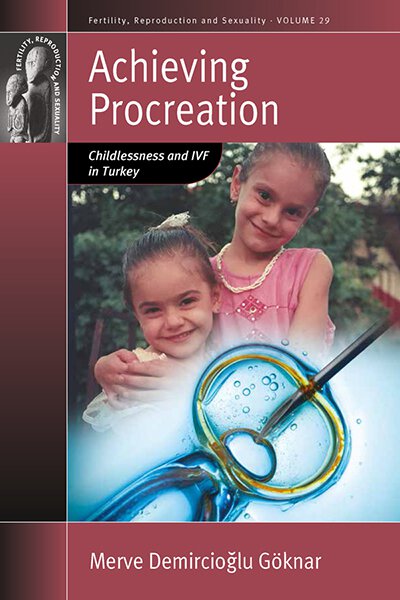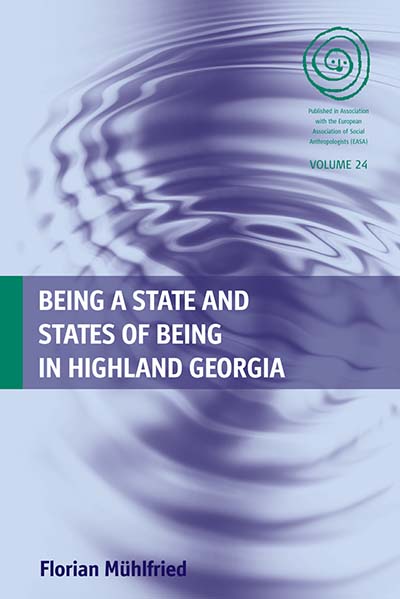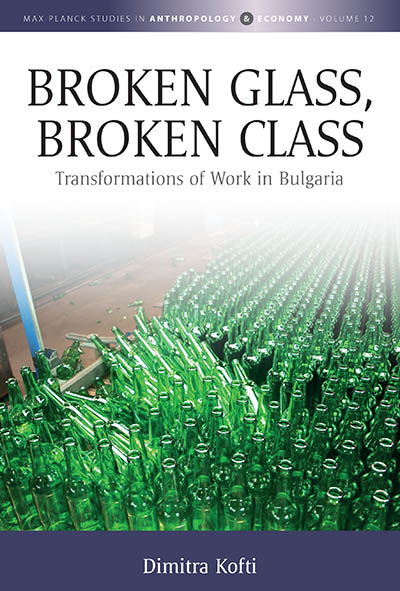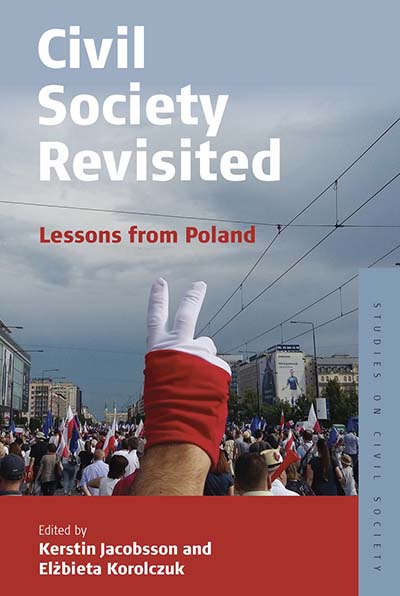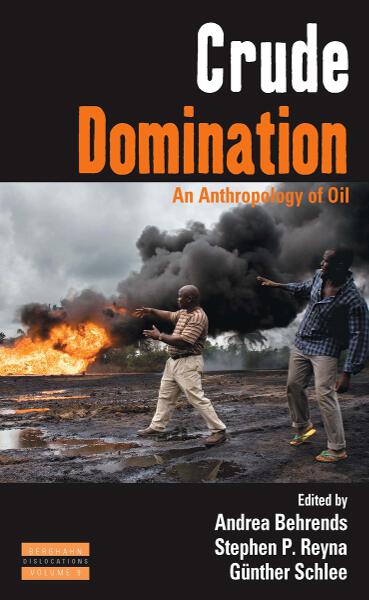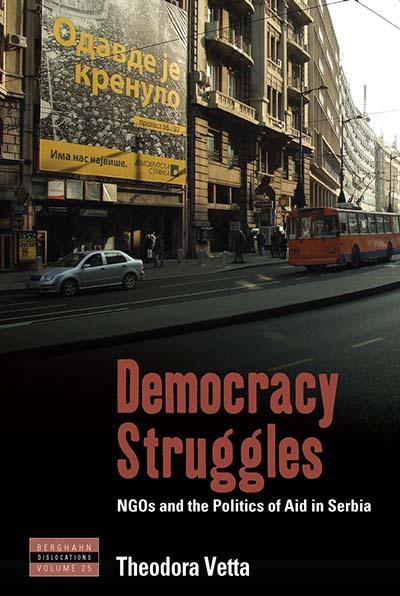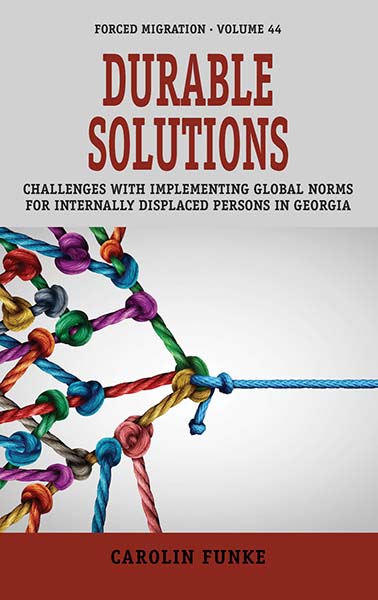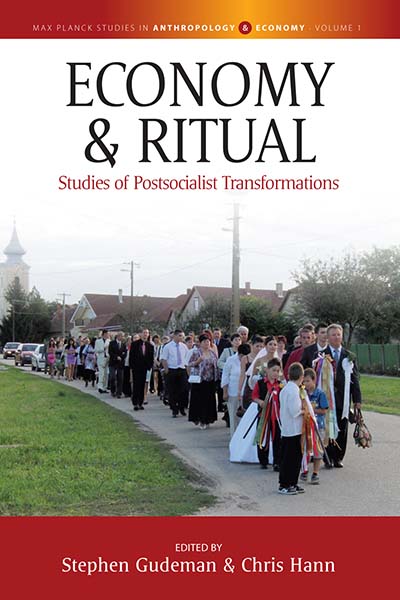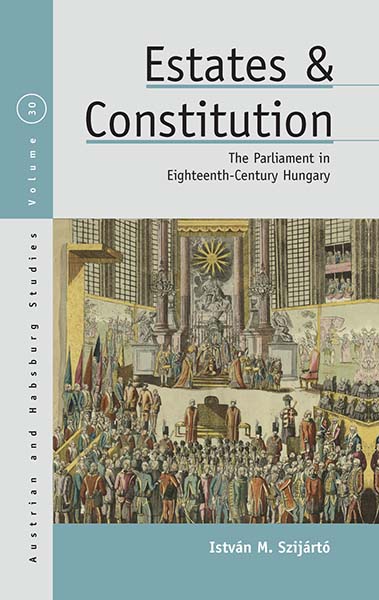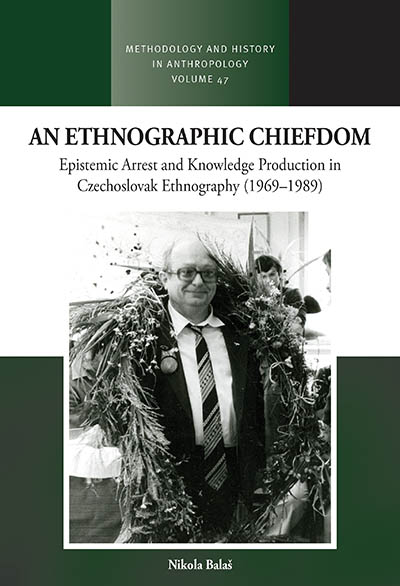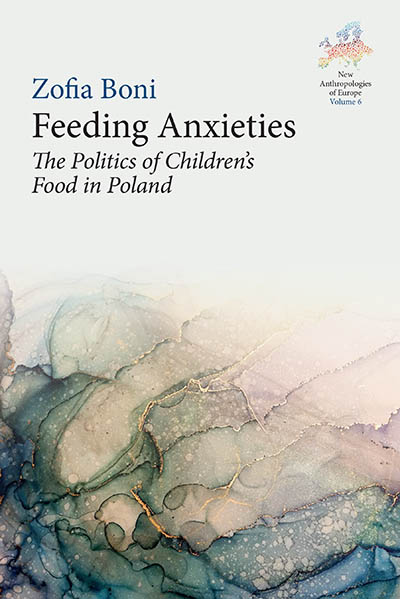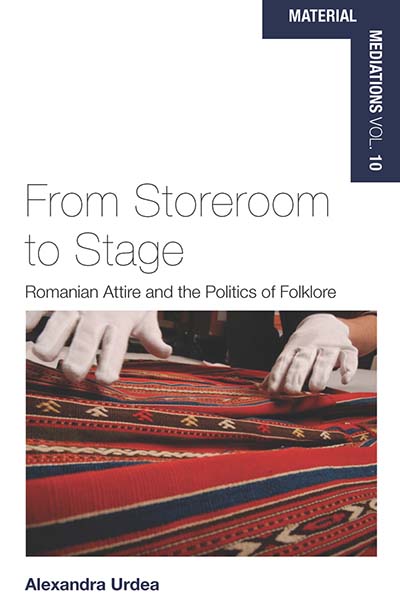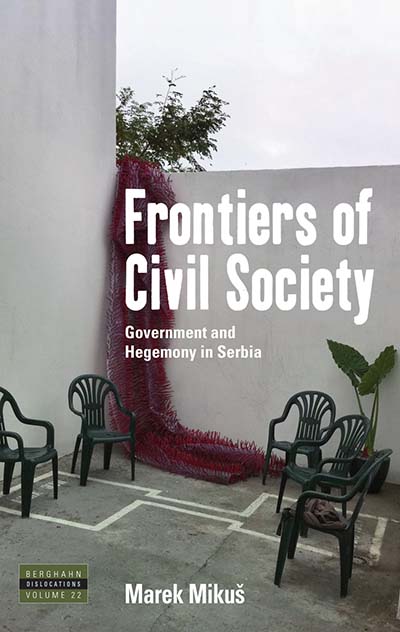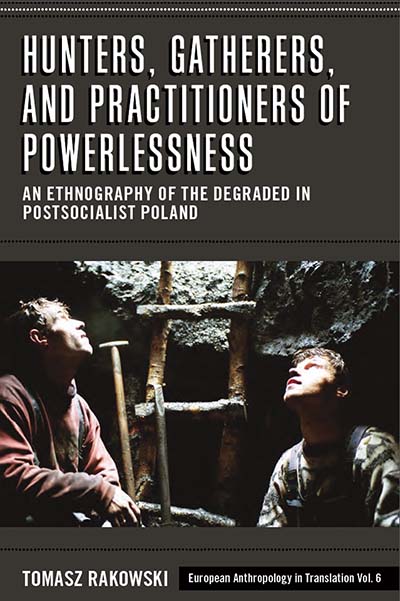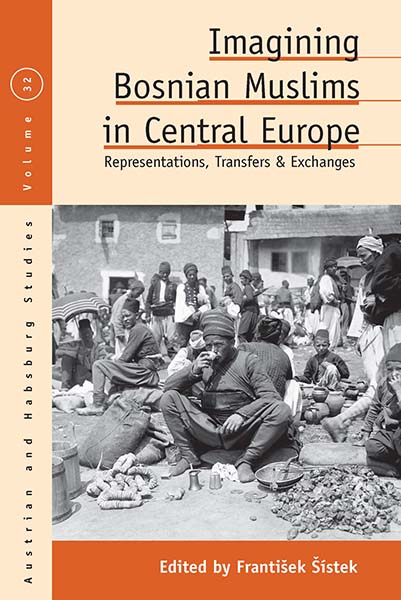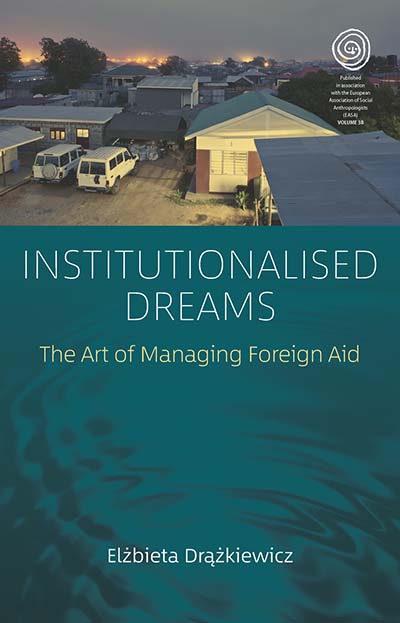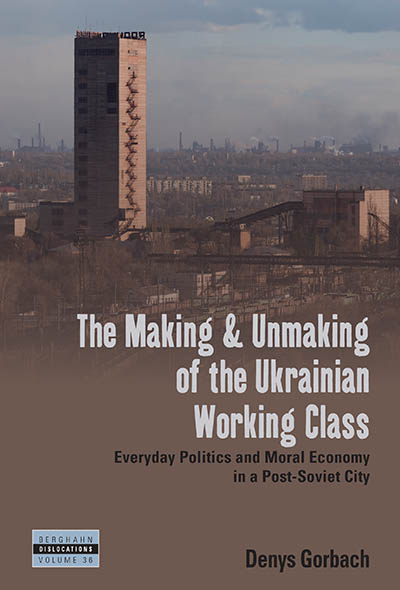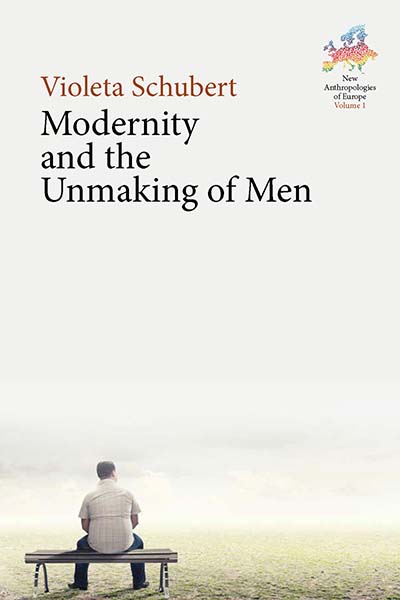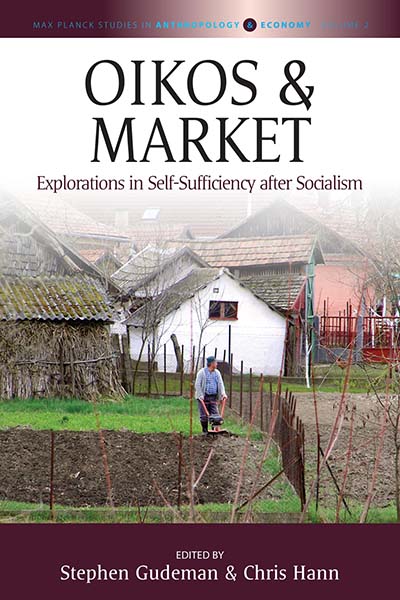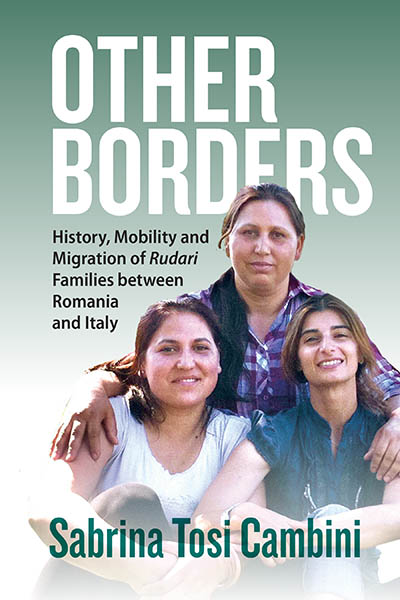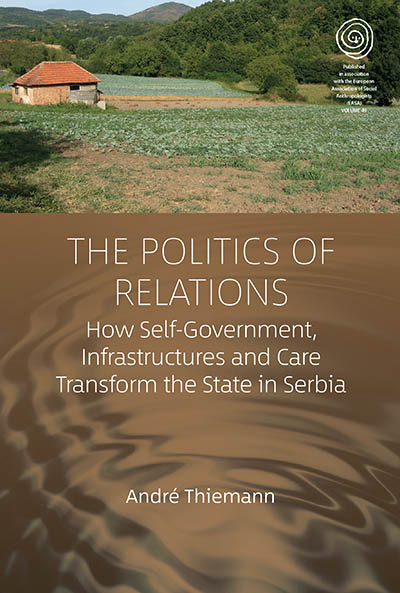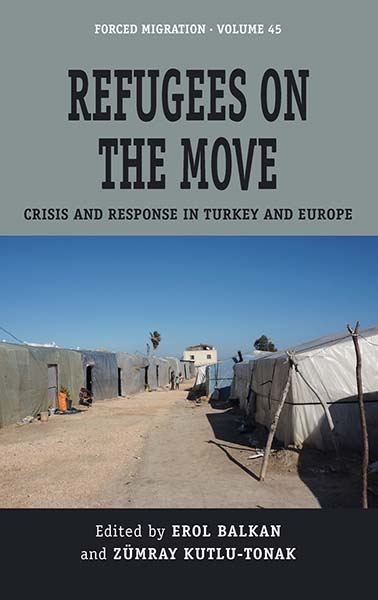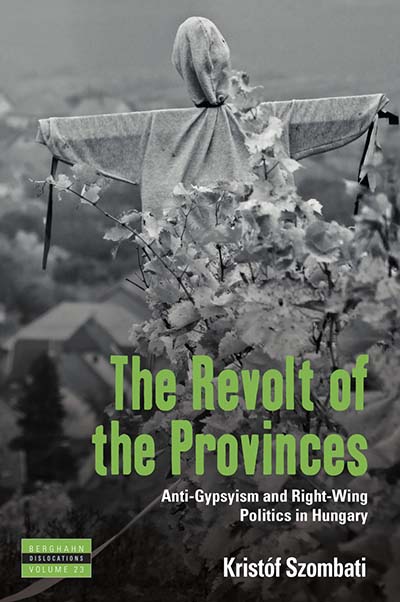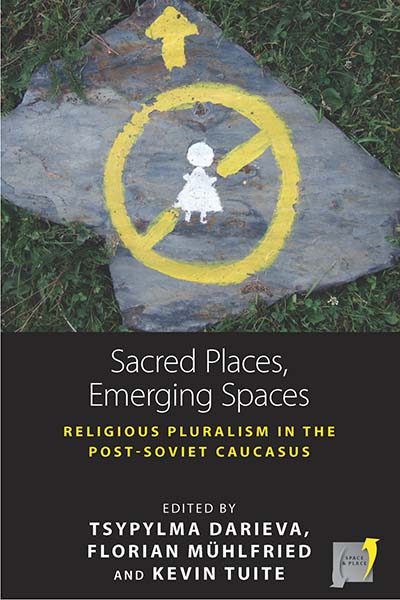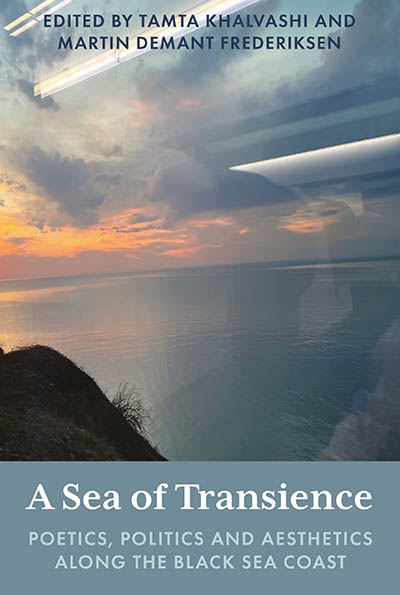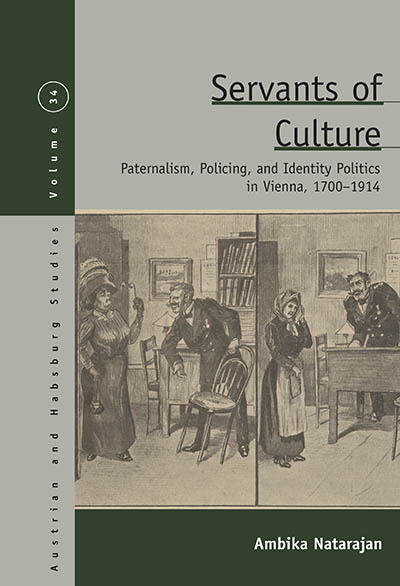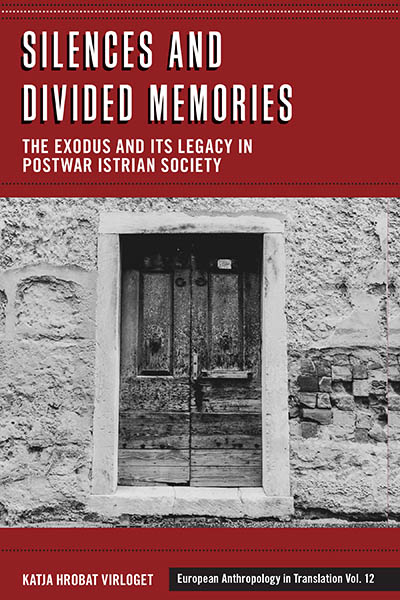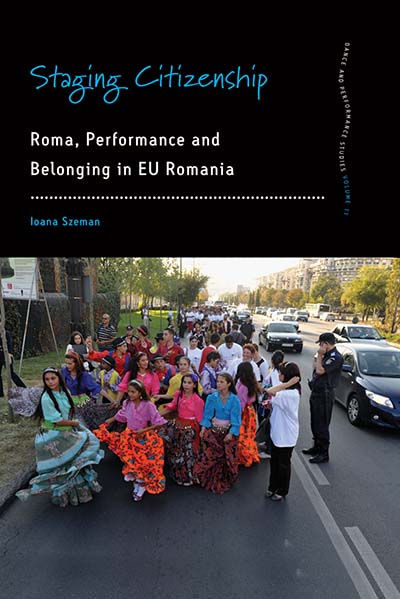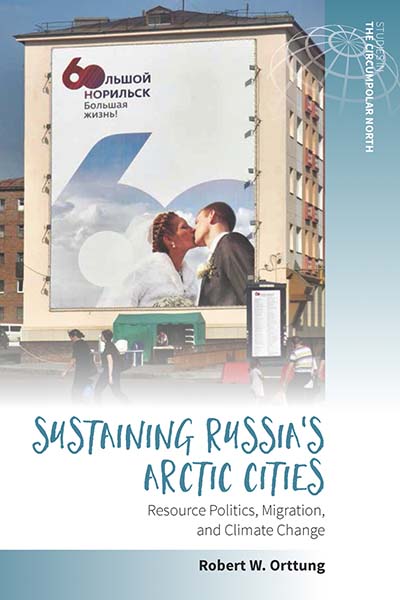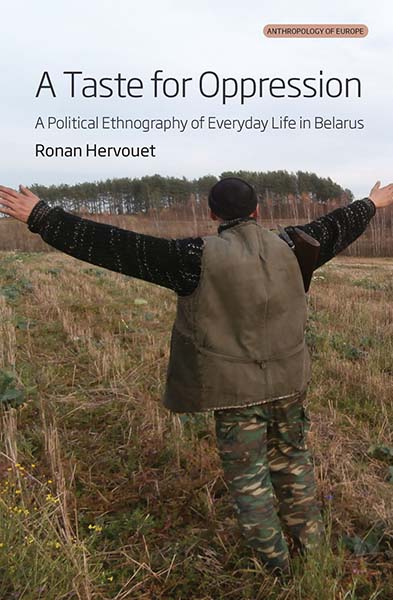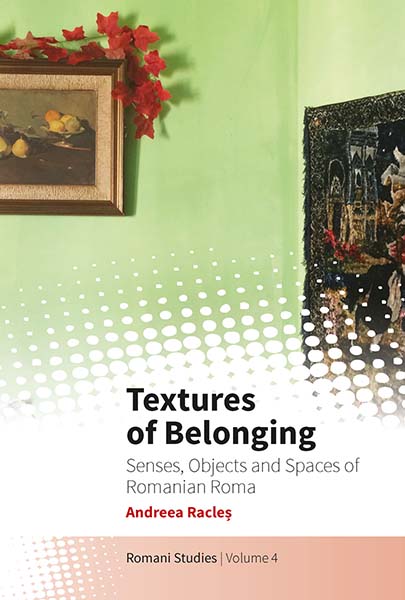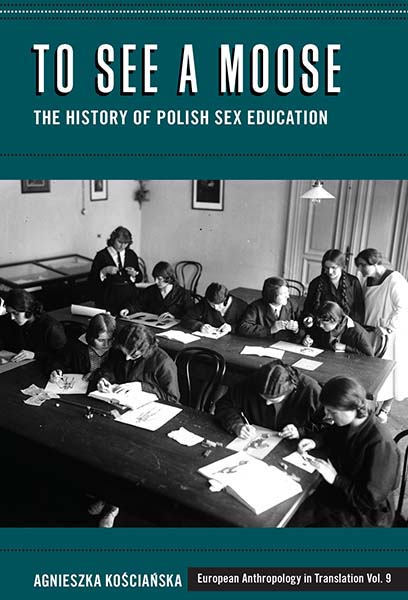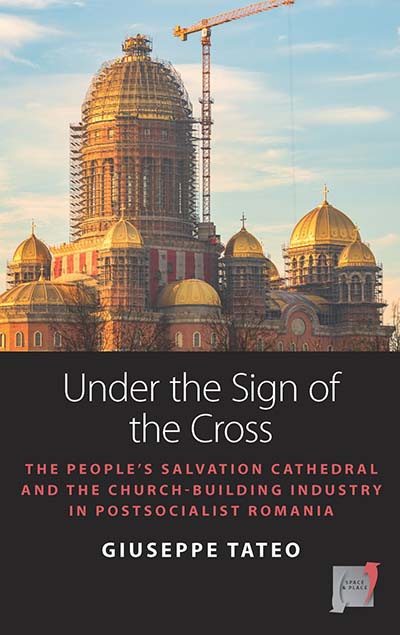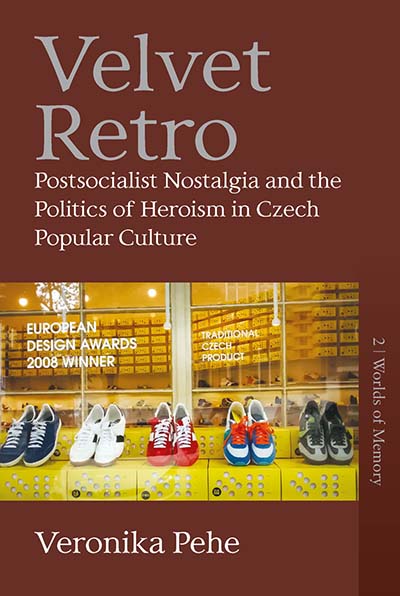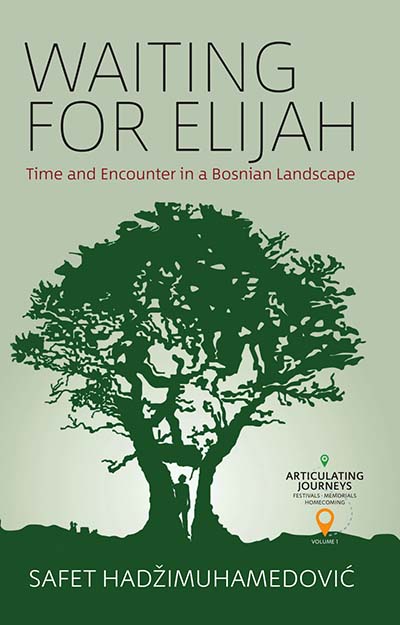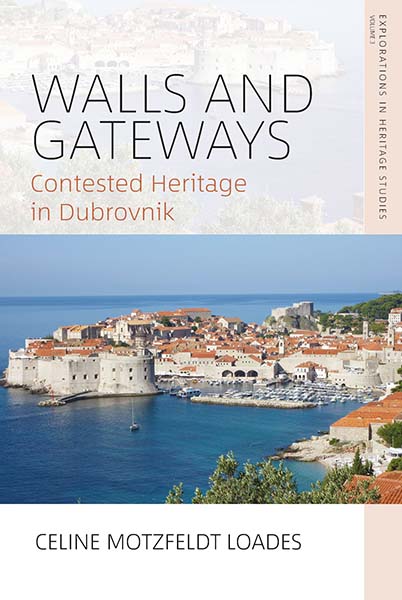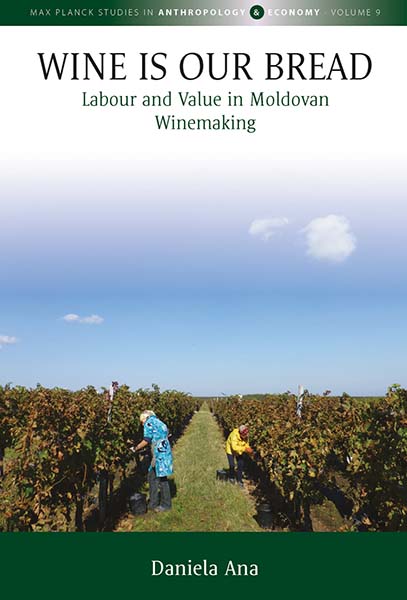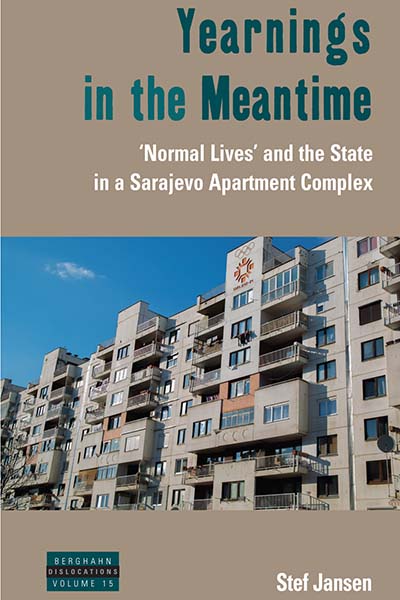Home -> Browse
-

Achieving Procreation
Childlessness and IVF in Turkey
Demircioğlu Göknar, M.
Managing social relationships for childless couples in pro-natalist societies can be a difficult art to master, and may even become an issue of belonging for both men and women. With ethnographic research gathered from two IVF clinics and in two villages in northwestern Turkey, this book explores infertility and assisted reproductive technologies within a secular Muslim population. Göknar investigates the experience of infertility through various perspectives, such as the importance of having a child for women, the mediating role of religion, the power dynamics in same-gender relationships, and the impact of manhood ideologies on the decision for — or against — having IVF.
Subjects: Medical Anthropology Gender Studies and Sexuality
Areas: Middle East & Israel Central/Eastern Europe
-

Antisemitism in Galicia
Agitation, Politics, and Violence against Jews in the Late Habsburg Monarchy
Buchen, T.
In the last third of the nineteenth century, the discourse on the “Jewish question” in the Habsburg crownlands of Galicia changed fundamentally, as clerical and populist politicians emerged to denounce the Jewish assimilation and citizenship. This pioneering study investigates the interaction of agitation, violence, and politics against Jews on the periphery of the Danube monarchy. In its comprehensive analysis of the functions and limitations of propaganda, rumors, and mass media, it shows just how significant antisemitism was to the politics of coexistence among Christians and Jews on the eve of the Great War.
Subjects: History: 18th/19th Century Jewish Studies
Area: Central/Eastern Europe
-

Being a State and States of Being in Highland Georgia
Mühlfried, F.
The highland region of the republic of Georgia, one of the former Soviet Socialist Republics, has long been legendary for its beauty. It is often assumed that the state has only made partial inroads into this region, and is mostly perceived as alien. Taking a fresh look at the Georgian highlands allows the author to consider perennial questions of citizenship, belonging, and mobility in a context that has otherwise been known only for its folkloric dimensions. Scrutinizing forms of identification with the state at its margins, as well as local encounters with the erratic Soviet and post-Soviet state, the author argues that citizenship is both a sought-after means of entitlement and a way of guarding against the state. This book not only challenges theories in the study of citizenship but also the axioms of integration in Western social sciences in general.
Subjects: Anthropology (General) Mobility Studies Development Studies
Area: Central/Eastern Europe
-

Broken Glass, Broken Class
Transformations of Work in Bulgaria
Kofti, D.
Based on a long-term study of the everyday postsocialist politics of labour in the wider context of intense socio-economic transformation in Bulgaria, this book tells the story of the flexibilization of production, the precaritization of work, shifting managerial practices, and ways in which people with different employment statuses live and work together. The ethnography starts with the rapidly moving conveyor belt of a glass factory, where a variety of global and local forces and workers’ divisions meet, and analyses how inequalities are reproduced both at the production site and back home.
Subjects: Political and Economic Anthropology Sociology Gender Studies and Sexuality
Area: Central/Eastern Europe
-

Civil Society Revisited
Lessons from Poland
Jacobsson, K. & Korolczuk, E. (eds)
In much social scientific literature, Polish civil society has been portrayed as weak and passive. This volume offers a much-needed corrective, challenging this characterization on both theoretical and empirical grounds and suggesting new ways of conceptualizing civil society to better account for events on the ground as well as global trends such as neoliberalism, migration, and the renewal of nationalist ideologies. Focusing on forms of collective action that researchers have tended to overlook, the studies gathered here show how public discourse legitimizes certain claims and political actions as “true” civil society, while others are too often dismissed. Taken together, they critique a model of civil society that is ‘made from above’.
Subjects: Sociology Political and Economic Anthropology
Area: Central/Eastern Europe
-

Crude Domination
An Anthropology of Oil
Behrends, A., Reyna, S. P. & Schlee, G. (eds)
Crude Domination is an innovative and important book about a critical topic – oil. While there have been numerous works about petroleum from ‘experience-far’ perspectives, there have been relatively few that have turned the ‘experience-near’ ethnographic gaze of anthropology on the topic. Crude Domination does just this among more peoples and more places than any other volume. Its chapters investigate nuances of culture, politics and economics in Africa, Latin America, and Eurasia as they pertain to petroleum. They wrestle with the key questions vexing scholars and practitioners alike: problems of the economic blight of the resource curse, underdevelopment, democracy, violence and war. Additionally they address topics that may initially appear insignificant – such as child witches and lionmen, fighting for oil when there is no oil, reindeer nomadism, community TV – but which turn out on closer scrutiny to be vital for explaining conflict and transformation in petro-states. Based upon these rich, new worlds of information, the text formulates a novel, domination approach to the social analysis of oil.
Subjects: Peace and Conflict Studies Anthropology (General)
Areas: Africa Latin America and the Caribbean Central/Eastern Europe
-

Democracy Struggles
NGOs and the Politics of Aid in Serbia
Vetta, T.
Tracing the boom of local NGOs since the 1990s in the context of the global political economy of aid, current trends of neoliberal state restructuring, and shifting post-Cold War hegemonies, this book explores the “associational revolution” in post-socialist, post-conflict Serbia. Looking into the country’s “transition” through a global and relational analytical prism, the ethnography unpacks the various forms of dispossession and inequality entailed in the democracy-promotion project.
Subjects: Anthropology (General) Development Studies Political and Economic Anthropology
Area: Central/Eastern Europe
-

Durable Solutions
Challenges with Implementing Global Norms for Internally Displaced Persons in Georgia
Funke, C.
Focusing on Georgia, this book presents a theoretical and empirical study on the implementation of durable solutions for internally displaced persons (IDPs). Building on extensive field research, it describes and explains the considerable problems which Georgia faces in establishing global norms, as well as the ongoing hardship that IDPs experience. Importantly, the book reveals the simultaneous progress and setbacks in implementing durable solutions. Successfully combining approaches from humanistic studies, international relations, and organizational sociology, this book explains the interaction of norms and actors at and among three societal levels: the international, national, and local.
Subjects: Refugee and Migration Studies Anthropology (General) Peace and Conflict Studies
Area: Central/Eastern Europe
-

Economy and Ritual
Studies of Postsocialist Transformations
Gudeman, S. & Hann, C. (eds)
According to accepted wisdom, rational practices and ritual action are opposed. Rituals drain wealth from capital investment and draw on a mode of thought different from practical ideas. The studies in this volume contest this view. Comparative, historical, and contemporary, the six ethnographies extend from Macedonia to Kyrgyzstan. Each one illuminates the economic and ritual changes in an area as it emerged from socialism and (re-)entered market society. Cutting against the idea that economy only means markets and that market action exhausts the meaning of economy, the studies show that much of what is critical for a people’s economic life takes place outside markets and hinges on ritual, understood as the negation of the everyday world of economising.
Subjects: Anthropology (General) Political and Economic Anthropology
Area: Central/Eastern Europe
-

Estates and Constitution
The Parliament in Eighteenth-Century Hungary
Szijártó, I. M.
Across eighteenth-century Europe, political power resided overwhelmingly with absolute monarchs, with notable exceptions including the much-studied British Parliament as well as the frequently overlooked Hungarian Diet, which placed serious constraints on royal power and broadened opportunities for political participation. Estates and Constitution provides a rich account of Hungarian politics during this period, restoring the Diet to its rightful place as one of the era’s major innovations in government. István M. Szijártó traces the religious, economic, and partisan forces that shaped the Diet, putting its historical significance in international perspective.
Subject: History: 18th/19th Century
Area: Central/Eastern Europe
-

An Ethnographic Chiefdom
Epistemic Arrest and Knowledge Production in Czechoslovak Ethnography (1969–1989)
Balaš, N.
The Czechoslovak academic discipline called ‘Ethnography and Folklore Studies’ was impacted and influenced by the daily realities of state socialism in 1969–1989. This book examines the role of the planned economy, Marxist–Leninist ideology, disciplinary hierarchies and clientelist networks, ultimately showing how state socialist features together brought about the discipline’s epistemic stalling. It offers a fresh perspective on the long-standing debates purporting to capture the differences between the Central and Eastern European tradition of ethnology and Western sociocultural anthropology.
Subjects: Theory and Methodology Anthropology (General)
Area: Central/Eastern Europe
-

Feeding Anxieties
The Politics of Children's Food in Poland
Boni, Z.
Focusing on the underlying politics behind children’s food, this book highlights the variety of social relationships, expectations and emotions ingrained in feeding children in Poland. With rich ethnographic accounts, including research with children, the book demonstrates how families, schools, the food industry and state agencies shape and experience feeding anxieties, and how such anxiety is at the heart of a new form of sociality. The book complicates our understanding of health and modern subjectivity and unpacks what and how we feed children today.
Subjects: Food & Nutrition Anthropology (General) Sociology
Area: Central/Eastern Europe
-

From Storeroom to Stage
Romanian Attire and the Politics of Folklore
Urdea, A.
Departing from an ethnographic collection in London, From Storeroom to Stage traces the journey of its artefacts back to the Romanian villages where they were made 70 years ago, and to other places where similar objects are still in use. The book explores the role that material culture plays in the production of value and meaning by examining how folk objects are mobilized in national ideologies, transmissions of personal and family memory, museological discourses, and artistic acts.
Subjects: Anthropology (General) Museum Studies Heritage Studies
Area: Central/Eastern Europe
-

Frontiers of Civil Society
Government and Hegemony in Serbia
Mikuš, M.
In Serbia, as elsewhere in postsocialist Europe, the rise of “civil society” was expected to support a smooth transformation to Western models of liberal democracy and capitalism. More than twenty years after the Yugoslav wars, these expectations appear largely unmet. Frontiers of Civil Society asks why, exploring the roles of multiple civil society forces in a set of government “reforms” of society and individuals in the early 2010s, and examining them in the broader context of social struggles over neoliberal restructuring and transnational integration.
Subjects: Anthropology (General) Political and Economic Anthropology History: 20th Century to Present
Area: Central/Eastern Europe
-

Gender in Georgia
Feminist Perspectives on Culture, Nation, and History in the South Caucasus
Barkaia, M. & Waterston, A. (eds)
As Georgia seeks to reinvent itself as a nation-state in the post-Soviet period, Georgian women are maneuvering, adjusting, resisting and transforming the new economic, social and political order. In Gender in Georgia, editors Maia Barkaia and Alisse Waterston bring together an international group of feminist scholars to explore the socio-political and cultural conditions that have shaped gender dynamics in Georgia from the late 19th century to the present. In doing so, they provide the first-ever woman-centered collection of research on Georgia, offering a feminist critique of power in its many manifestations, and an assessment of women’s political agency in Georgia.
Subjects: Gender Studies and Sexuality Anthropology (General) Cultural Studies (General)
Area: Central/Eastern Europe
-

Hunters, Gatherers, and Practitioners of Powerlessness
An Ethnography of the Degraded in Postsocialist Poland
Rakowski, T.
The socio-economic transformations of the 1990s have forced many people in Poland into impoverishment. Hunters, Gatherers, and Practitioners of Powerlessness gives a dramatic account of life after this degradation, tracking the experiences of unemployed miners, scrap collectors, and poverty-stricken village residents. Contrary to the images of passivity, resignation, and helplessness that have become powerful tropes in Polish journalism and academic writing, Tomasz Rakowski traces the ways in which people actively reconfigure their lives. As it turns out, the initial sense of degradation and helplessness often gives way to images of resourcefulness that reveal unusual hunting-and-gathering skills.
Subject: Anthropology (General)
Area: Central/Eastern Europe
-

Imagining Bosnian Muslims in Central Europe
Representations, Transfers and Exchanges
Šístek, F. (ed)
As a Slavic-speaking religious and ethnic “Other” living just a stone’s throw from the symbolic heart of the continent, the Muslims of Bosnia and Herzegovina have long occupied a liminal space in the European imagination. To a significant degree, the wider representations and perceptions of this population can be traced to the reports of Central European—and especially Habsburg—diplomats, scholars, journalists, tourists, and other observers in the late nineteenth and early twentieth centuries. This volume assembles contributions from historians, anthropologists, political scientists, and literary scholars to examine the political, social, and discursive dimensions of Bosnian Muslims’ encounters with the West since the nineteenth century.
Subjects: History (General) Anthropology of Religion
Area: Central/Eastern Europe
-

Institutionalised Dreams
The Art of Managing Foreign Aid
Drążkiewicz, E.
Using examples from Poland, Elżbieta Drążkiewicz explores the question of why states become donors and individuals decide to share their wealth with others through foreign aid. She comes to the conclusion that the concept of foreign aid requires the establishment of a specific moral economy which links national ideologies and local cultures of charitable giving with broader ideas about the global political economy. It is through these processes that faith in foreign aid interventions as a solution to global issues is generated. The book also explores the relationship linking a state institution with its NGO partners, as well as international players such as the EU or OECD.
Subjects: Political and Economic Anthropology Anthropology (General) Sustainable Development Goals
Area: Central/Eastern Europe
-

The Making and Unmaking of the Ukrainian Working Class
Everyday Politics and Moral Economy in a Post-Soviet City
Gorbach, D.
Industrial workers in Ukraine have a complex political lifeworld because their political action aimed at bringing radical social change coexists with a demobilizing stance that condemns all political participation as corrupt. This contradictory attitude to politics defines the character of populist mass mobilizations that shook Ukraine in 2004 and 2014, as well as the electoral overhaul of 2019 and the popular response to the Russian invasion in 2022. Based on three years of fieldwork in the city of Kryvyi Rih, the book focuses on the moral economy that constitutes the working class and structures its relations with other social groups.
Subjects: Political and Economic Anthropology Sociology Urban Studies
Area: Central/Eastern Europe
-

Modernity and the Unmaking of Men
Schubert, V.
Responding to the renewed emphasis on the significance of village studies, this book focuses on aging bachelorhood as a site of intolerable angst when faced with rural depopulation and social precarity. Based on ongoing ethnographic fieldwork in contemporary Macedonian society, the book explores the intersections between modernity, kinship and gender. It argues that as a critical consequence of demographic rupture, changing values and societal shifts, aging bachelorhood illuminates and challenges conceptualizations of performativity and social presence.
Subjects: Anthropology (General) Sociology Gender Studies and Sexuality
Area: Central/Eastern Europe
-

Oikos and Market
Explorations in Self-Sufficiency after Socialism
Gudeman, S. & Hann, C. (eds)
Self-sufficiency of the house is practiced in many parts of the world but ignored in economic theory, just as socialist collectivization is assumed to have brought household self-sufficiency to an end. The ideals of self-sufficiency, however, continue to shape economic activity in a wide range of postsocialist settings. This volume’s six comparative studies of postsocialist villages in Eastern Europe and Asia illuminate the enduring importance of the house economy, which is based not on the market but on the order of the house. These formations show that economies depend not only on the macro institutions of markets and states but also on the micro institutions of families, communities, and house economies, often in an uneasy relationship.
Subject: Anthropology (General)
Area: Central/Eastern Europe
-

Other Borders
History, Mobility and Migration of Rudari Families between Romania and Italy
Tosi Cambini, S.
Rudari Lingurari families, one of many significant minority groups in Southeastern Europe, have been characterized by mobility since the end of the nineteenth century, from voluntary border crossings to deportations and forced relocations. Other Borders draws from participatory, multi-site ethnographic research to explore rudari families' cultural and relational frames of mobility through their social and economic organization. Sabrina Tosi Cambini develops the concept of 'moving gaze' to more effectively explore rudari migration paths across multiple countries, their occupation of unoccupied buildings in Italy, their housing practices in both Italy and Romania, and the movement of their objects, ideas and imaginaries.
Subjects: Refugee and Migration Studies Cultural Studies (General) Theory and Methodology
Areas: Southern Europe Central/Eastern Europe
-

The Politics of Relations
How Self-Government, Infrastructures, and Care Transform the State in Serbia
Thiemann, A.
Rethinking the contributions of the Manchester School of Social Anthropology for political ethnography, the Politics of Relations elaborates its relational approach to the state along four interlaced axes of research – embeddedness, boundary work, modalities and strategic selectivity – that enable thick comparisons across spatio-temporal scales of power.
In Serbia local experiences of self-government, infrastructure and care motivate its citizens to “become the state” while cursing it heartily. While both officials and citizens strive for a state that enables a “normal life,” they navigate the increasingly illiberal politics enacted by national parties and which are tolerated by trans-national donors.Subjects: Political and Economic Anthropology Sociology
Area: Central/Eastern Europe
-

Refugees on the Move
Crisis and Response in Turkey and Europe
Balkan, E. & Kutlu Tonak, Z. (eds)
Refugees on the Move highlights and explores the profound complexities of the current refugee issue by focusing specifically on Syrian refugees in Turkey and other European countries and responses from the host countries involved. It examines the causes of the movement of refugee populations, the difficulties they face during their journeys, the daily challenges and obstacles they experience, and host governments’ attempts to manage and overcome the so-called “refugee crisis.”
Subjects: Refugee and Migration Studies Political and Economic Anthropology
Area: Central/Eastern Europe
-

The Revolt of the Provinces
Anti-Gypsyism and Right-Wing Politics in Hungary
Szombati, K.
The first in-depth ethnographic monograph on the New Right in Central and Eastern Europe, The Revolt of the Provinces explores the making of right-wing hegemony in Hungary over the last decade. It explains the spread of racist sensibilities in depressed rural areas, shows how activists, intellectuals and politicians took advantage of popular racism to empower right-wing agendas and examines the new ruling party's success in stabilizing an 'illiberal regime'. To illuminate these important dynamics, the author proposes an innovative multi-scalar and relational framework, focusing on interaction between social antagonisms emerging on the local level and struggles waged within the political public sphere.
Subjects: Political and Economic Anthropology Sociology
Area: Central/Eastern Europe
-

Sacred Places, Emerging Spaces
Religious Pluralism in the Post-Soviet Caucasus
Darieva, T., Mühlfried, F., & Tuite, K. (eds)
Though long-associated with violence, the Caucasus is a region rich with religious conviviality. Based on fresh ethnographies in Georgia, Armenia, Azerbaijan, and the Russian Federation, Sacred Places, Emerging Spaces discusses vanishing and emerging sacred places in the multi-ethnic and multi-religious post-Soviet Caucasus. In exploring the effects of de-secularization, growing institutional control over hybrid sacred sites, and attempts to review social boundaries between the religious and the secular, these essays give way to an emergent Caucasus viewed from the ground up: dynamic, continually remaking itself, within shifting and indefinite frontiers.
Subjects: Anthropology (General) Anthropology of Religion Sociology
Areas: Asia Central/Eastern Europe
-

A Sea of Transience
Poetics, Politics and Aesthetics along the Black Sea Coast
Khalvashi, T. & Demant Frederiksen, M. (eds)
Transience is found in every meeting and form of coexistence between people and things that live and exist by, or move across or along, the Black Sea. It may come in various forms and guises, from de facto states, tourism, migration, trafficking or military troops, and it needs to be written and captured in sensuous, affective and imaginative ways. With particular attention to poetics, politics and aesthetics, this volume focuses on the scales of transient moments and histories, and enables readers to see and sense the many forms of transience that occur in a given landscape, sea or space.
Subjects: Anthropology (General) Sociology Environmental Studies (General)
Areas: Central/Eastern Europe Asia
-

Servants of Culture
Paternalism, Policing, and Identity Politics in Vienna, 1700-1914
Natarajan, A.
In nineteenth century Cisleithanian Austria, poor, working-class women underwent mass migrations from the countryside to urban centers for menial or unskilled labor jobs. Through legal provisions on women’s work in the Habsburg Empire, there was an increase in the policing and surveillance of what was previously a gender-neutral career, turning it into one dominated by thousands of female rural migrants. Servants of Culture provides an account of Habsburg servant law since the eighteenth century and uncovers the paternalistic and maternalistic assumptions and anxieties which turned the interest of socio-political players in improving poor living and working conditions into practices that created restrictive gender and class hierarchies. Through pioneering analysis of the agendas of medical experts, police, socialists, feminists, legal reformers, and even serial killers, this volume puts forth a neglected history of the state of domestic service discourse at the turn of the 19th century and how it shaped and continues to shape the surveillance of women.
Subjects: History: 18th/19th Century Refugee and Migration Studies Gender Studies and Sexuality
Area: Central/Eastern Europe
-

Silences and Divided Memories
The Exodus and its Legacy in Post-War Istrian Society
Virloget, K. H.
The Istrian Peninsula, which is made up of modern-day Croatia, Slovenia, and Italy suffered from the so-called "Istrian exodus" after the Second World War. This book looks at this difficult, silenced past and shifts the usual focus from migrants to those who stayed behind and to the new immigrants who came to the “emptied” towns.The research, based on individual memories, deals with silences and competing national discourses, reasons to stay and leave, hybrid border ethnic identities, and the renewal of Istrian society and its new social relations. It is a self-critical reflection on an ignored chapter of national history, which, with an empathetic approach, allows the silence to speak.
Subjects: Anthropology (General) Refugee and Migration Studies Memory Studies
Areas: Southern Europe Central/Eastern Europe
-

Staging Citizenship
Roma, Performance and Belonging in EU Romania
Szeman, I.
Based on over a decade of fieldwork conducted with urban Roma, Staging Citizenship offers a powerful new perspective on one of the European Union’s most marginal and disenfranchised communities. Focusing on “performance” broadly conceived, it follows members of a squatter’s settlement in Transylvania as they navigate precarious circumstances in a postsocialist state. Through accounts of music and dance performances, media representations, activism, and interactions with both non-governmental organizations and state agencies, author Ioana Szeman grounds broad themes of political economy, citizenship, resistance, and neoliberalism in her subjects’ remarkably varied lives and experiences.
Subjects: Anthropology (General) Performance Studies
Area: Central/Eastern Europe
-

Sustaining Russia's Arctic Cities
Resource Politics, Migration, and Climate Change
Orttung, R. (ed)
Urban areas in Arctic Russia are experiencing unprecedented social and ecological change. This collection outlines the key challenges that city managers will face in navigating this shifting political, economic, social, and environmental terrain. In particular, the volume examines how energy production drives a boom-bust cycle in the Arctic economy, explores how migrants from Muslim cultures are reshaping the social fabric of northern cities, and provides a detailed analysis of climate change and its impact on urban and industrial infrastructure.
Subjects: Urban Studies Political and Economic Anthropology Refugee and Migration Studies Sustainable Development Goals
Areas: Central/Eastern Europe Asia-Pacific Circumpolar
-

A Taste for Oppression
A Political Ethnography of Everyday Life in Belarus
Hervouet, R.
Belarus has emerged from communism in a unique manner as an authoritarian regime. The author, who has lived in Belarus for several years, highlights several mechanisms of tyranny, beyond the regime’s ability to control and repress, which should not be underestimated. The book immerses the reader in the depths of the Belarusian countryside, among the kolkhozes and rural communities at the heart of this authoritarian regime under Alexander Lukashenko, and offers vivid descriptions of the everyday life of Belarusians. It sheds light on the reasons why part of the population supports Lukashenko and takes a fresh look at the functioning of what has been called 'the last dictatorship in Europe'.
Subjects: Anthropology (General) Sociology
Area: Central/Eastern Europe
-

Textures of Belonging
Senses, Objects and Spaces of Romanian Roma
Racleş, A.
The longstanding European conception that Roma and non-Roma are separated by unambiguous socio-cultural distinctions has led to the construction of Roma as “non-belonging others.” Challenging this conception, Textures of Belonging explores how Roma negotiate and feel belonging at the everyday level. Inspired by material culture, sensorial anthropology, and human geography approaches, this book uses ethnographic research to examine the role of domestic material forms and their sensorial qualities in nurturing connections with people and places that transcend socio-political boundaries.
Subjects: Anthropology (General) Sociology Cultural Studies (General)
Area: Central/Eastern Europe
-

To See a Moose
The History of Polish Sex Education
Kościańska, A.
Guiding the reader through the development of sex education in Poland, Agnieszka Kościańska looks at how it has changed from the 19th century to the present day. The book compares how sex was described in school textbooks, including those scrapped by the communists for fear of offending religious sentiments, and explores how the Catholic church retained its power in Poland under various regimes. The book also identifies the women and men who changed the way sex was written about in the country, and how they established the field of Polish sex education.
Subjects: Anthropology (General) Gender Studies and Sexuality History (General)
Area: Central/Eastern Europe
-

Under the Sign of the Cross
The People’s Salvation Cathedral and the Church-Building Industry in Postsocialist Romania
Tateo, G.
Based on extensive ethnographic research, this book delves into the thriving industry of religious infrastructure in Romania, where 4,000 Orthodox churches and cathedrals have been built in three decades. Following the construction of the world’s highest Orthodox cathedral in Bucharest, the book brings together sociological and anthropological scholarship on eastern Christianity, secularization, urban change and nationalism. Reading postsocialism through the prism of religious change, the author argues that the emergence of political, entrepreneurial and intellectual figures after 1990 has happened ‘under the sign of the cross’.
Subjects: Anthropology of Religion Anthropology (General) Urban Studies
Area: Central/Eastern Europe
-

Velvet Retro
Postsocialist Nostalgia and the Politics of Heroism in Czech Popular Culture
Pehe, V.
Scholars of state socialism have frequently invoked “nostalgia” to identify an uncritical longing for the utopian ambitions and lived experience of the former Eastern Bloc. However, this concept seems insufficient to describe memory cultures in the Czech Republic and other contexts in which a “retro” fascination with the past has proven compatible with a steadfast critique of the state socialist era. This innovative study locates a distinctively retro aesthetic in Czech literature, film, and other cultural forms, enriching our understanding of not only the nation’s memory culture, but also the ways in which popular culture can structure collective memory.
Subjects: Cultural Studies (General) History: 20th Century to Present Film and Television Studies Memory Studies
Area: Central/Eastern Europe
-

Waiting for Elijah
Time and Encounter in a Bosnian Landscape
HadžiMuhamedović, S.
Waiting for Elijah is an intimate portrait of time-reckoning, syncretism, and proximity in one of the world’s most polarized landscapes, the Bosnian Field of Gacko. Centered on the shared harvest feast of Elijah’s Day, the once eagerly awaited pinnacle of the annual cycle, the book shows how the fractured postwar landscape beckoned the return of communal life that entails such waiting. This seemingly paradoxical situation—waiting to wait—becomes a starting point for a broader discussion on the complexity of time set between cosmology, nationalism, and embodied memories of proximity.
Subjects: Anthropology (General) Anthropology of Religion Refugee and Migration Studies
Area: Central/Eastern Europe
-

Walls and Gateways
Contested Heritage in Dubrovnik
Loades, C. M.
In 1979 Dubrovnik was declared a UNESCO World Heritage site, which had consequences for the city's broader cultural heritage. Walls and Gateways explores how this status intersects with the reconstruction and consolidation of identities and locality in the city’s post-war context. It analyses how representations, perceptions and uses of Dubrovnik’s heritage are embedded in particular cultural practices, materiality and place. In Dubrovnik’s post-war context, different uses of cultural memory and heritage provoke both dissonance and unity, shape practices and mobilize cultural and political activism.
Subjects: Heritage Studies Anthropology (General) Memory Studies
Area: Central/Eastern Europe
-

White Eagle, Black Eagle
Ethnic Relations in the German-Polish Borderlands
Parkin, R.
Studying the German-Polish ethnic relations, this book analyses the people and region through their respective borderlands, migration, official cooperation and unofficial suspicions across the border. The main conclusion is that, while officialdom is generally keen to develop cross-border ties, which ordinary people do take advantage of, these tend to be much more sceptical of the potential impact to their lives in what remains an economically depressed area despite cross-border cooperation having been possible for several decades.
Subjects: Anthropology (General) Political and Economic Anthropology History: 20th Century to Present
Area: Central/Eastern Europe
-

Wine Is Our Bread
Labour and Value in Moldovan Winemaking
Ana, D.
Based on ethnographic work in a Moldovan winemaking village, Wine Is Our Bread shows how workers in a prestigious winery have experienced the country’s recent entry into the globalized wine market and how their productive activities at home and in the winery contribute to the value of commercial terroir wines. Drawing on theories of globalization, economic anthropology and political economy, the book contributes to understanding how crises and inequalities in capitalism lead to the ‘creative destruction’ of local products, their accelerated standardization and the increased exploitation of labour.
Subjects: Food & Nutrition Political and Economic Anthropology
Area: Central/Eastern Europe
-

Yearnings in the Meantime
'Normal Lives' and the State in a Sarajevo Apartment Complex
Jansen, S.
Shortly after the book’s protagonists moved into their apartment complex in Sarajevo, they, like many others, were overcome by the 1992-1995 war and the disintegration of socialist Yugoslavia More than a decade later, in post-war Bosnia and Herzegovina, they felt they were collectively stuck in a time warp where nothing seemed to be as it should be. Starting from everyday concerns, this book paints a compassionate yet critical portrait of people’s sense that they were in limbo, trapped in a seemingly endless “Meantime.” Ethnographically investigating yearnings for “normal lives” in the European semi-periphery, it proposes fresh analytical tools to explore how the time and place in which we are caught shape our hopes and fears.
Subjects: Anthropology (General) Urban Studies Political and Economic Anthropology
Area: Central/Eastern Europe


